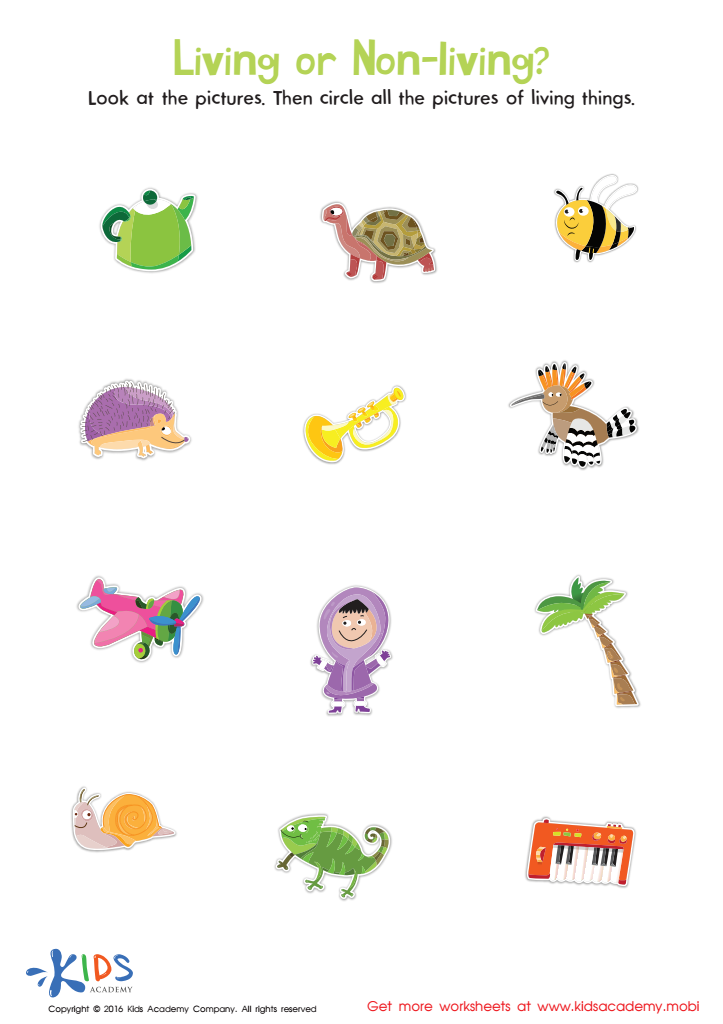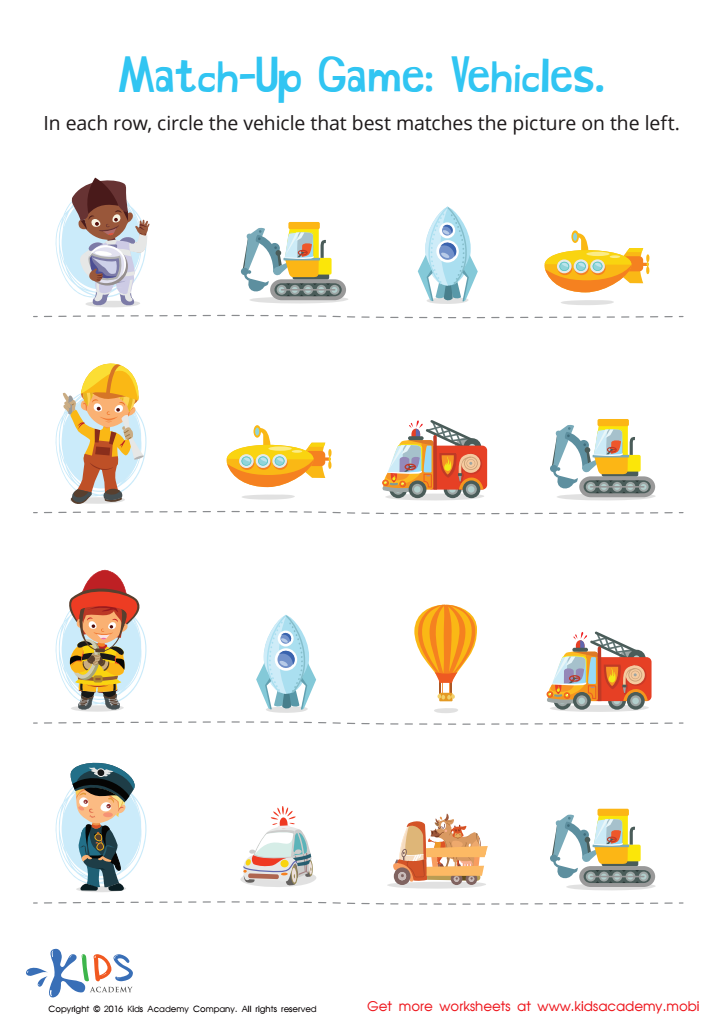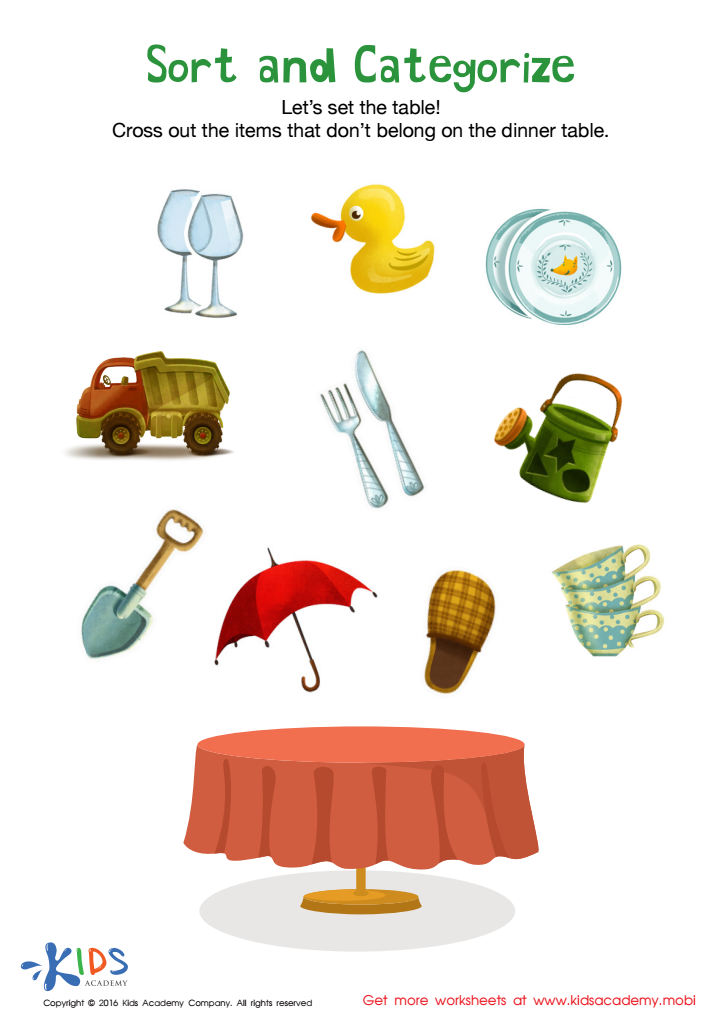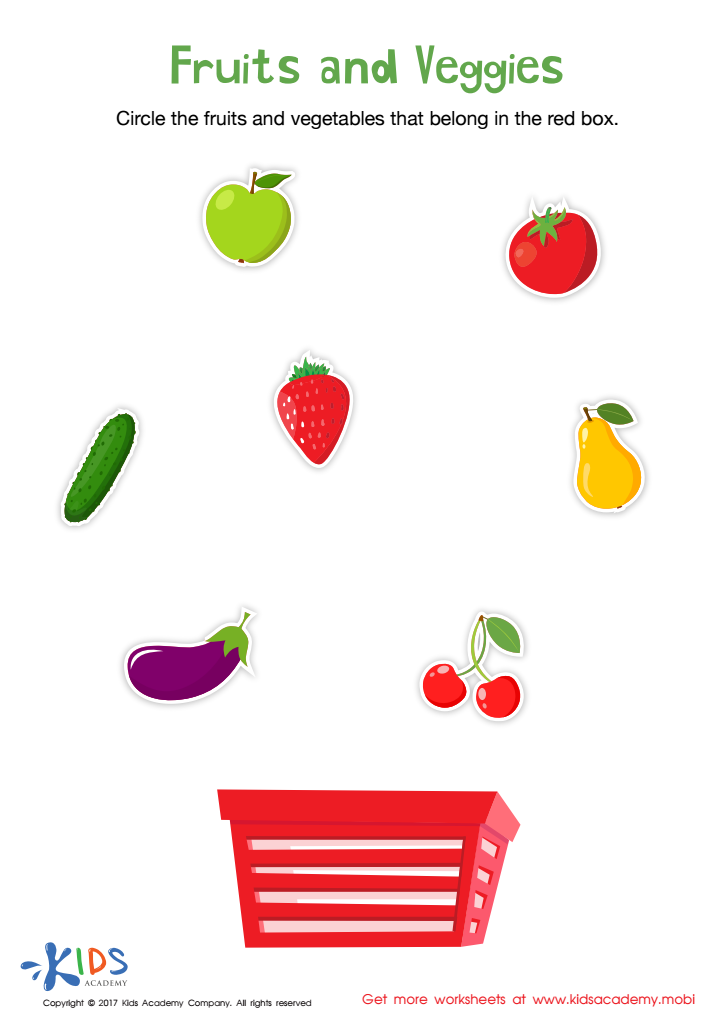Categorization skills Matching Worksheets for Ages 3-7
6 filtered results
-
From - To
Discover our engaging Categorization Skills Matching Worksheets designed specifically for children ages 3-7! These interactive printables help young learners develop critical thinking and sorting abilities through fun activities that encourage them to group items by similarities such as color, shape, and type. With a variety of themes and colorful illustrations, children will enjoy matching objects while enhancing their cognitive skills. Ideal for teachers and parents seeking to support early childhood education, our worksheets foster creativity and make learning enjoyable. Download these worksheets today to spark your child's curiosity and help them gain essential categorization skills in a playful, imaginative way!


Identifying Living and Non–living Things Sorting Worksheet


Matching: Classifying Toys by Size Worksheet


Vehicles Worksheet


Logic Game Sorting Worksheet
Categorization skills are essential for children aged 3-7 as they serve as foundational blocks for critical thinking and learning. This developmental stage is crucial for cognitive growth, where mastering these skills enhances a child’s ability to organize information and understand relationships among objects and concepts. Parents and teachers should care about categorization skills because they foster essential cognitive processes, including problem-solving and analytical reasoning.
Children who can categorize can more effectively navigate their environment, helping them identify and group similar items, which is vital for language development and building vocabulary. For instance, categorizing animals as pets or wild reinforces understanding of their roles in our world. Additionally, strong categorization skills contribute to math readiness, laying the groundwork for sorting, counting, and classification—a precursor to more complex mathematical concepts.
Furthermore, categorization fosters social development. Engaging in activities that require grouping promotes cooperation and communication among peers. Involving parents and educators in activities like sorting games and thematic projects can create a rich learning atmosphere, encouraging active engagement and curiosity. In essence, prioritizing the development of categorization skills can significantly impact a child's overall academic success and daily interactions, setting a path for lifelong learning.
 Assign to My Students
Assign to My Students























